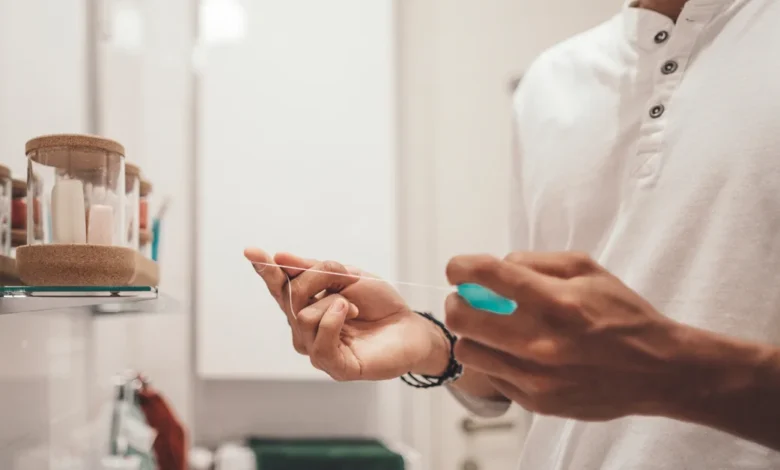Flossing Guide

Flossing your teeth is an essential part of good oral hygiene. It is the process of cleaning between your teeth with a thin piece of string or thread, known as dental floss. While brushing your teeth is important, it only cleans the surface of your teeth, leaving the spaces between them and below the gum line susceptible to decay and disease.
Flossing helps remove food particles and plaque buildup that your toothbrush can’t reach. When you eat, tiny bits of food get stuck between your teeth and can cause decay and gum disease. If these food particles are not removed, they can lead to the formation of plaque, which is a sticky, bacteria-laden film that can cause cavities and gum disease.
Flossing also helps to prevent bad breath. When food particles are left between your teeth, they can rot and cause an unpleasant odor. By flossing, you remove these particles and prevent the buildup of bacteria that cause bad breath.
But flossing isn’t just about removing food particles and plaque. It also helps to keep your gums healthy recommended by dentists such as Best Dallas Dentist. When you floss, you stimulate the gums, which increases blood flow and helps to keep them healthy. Healthy gums are essential for healthy teeth, as they act as a protective barrier against disease and infection.
If you’re not in the habit of flossing regularly, it’s important to start. Here are some tips to help you get started:
Choose the right type of floss. There are many different types of floss available, including waxed, unwaxed, flavored, and unflavored. Choose the type that feels most comfortable for you and that you’ll be more likely to use regularly as well as one that is recommended by an experienced endodontist, Best Dentist in Dallas is a great dentist to visit in Dallas for quality care.
Use enough floss. You should use about 18 inches of floss each time you floss. Wrap the floss around your fingers and use a fresh section for each tooth.
Be gentle. Flossing should not be painful. If you experience pain or bleeding, you may be flossing too hard or you may have gum disease. Consult your dentist if you experience persistent pain or bleeding.
Make it a habit. Flossing should be part of your daily oral hygiene routine, just like brushing your teeth. If you make it a habit, it will become second nature and you’ll be more likely to do it regularly.
In conclusion, flossing is an important part of good oral hygiene. It helps to remove food particles, plaque buildup, and bacteria from between your teeth, preventing cavities, gum disease, and bad breath. If you’re not in the habit of flossing regularly, start today and make it a part of your daily routine. Your teeth and gums will thank you for it!



